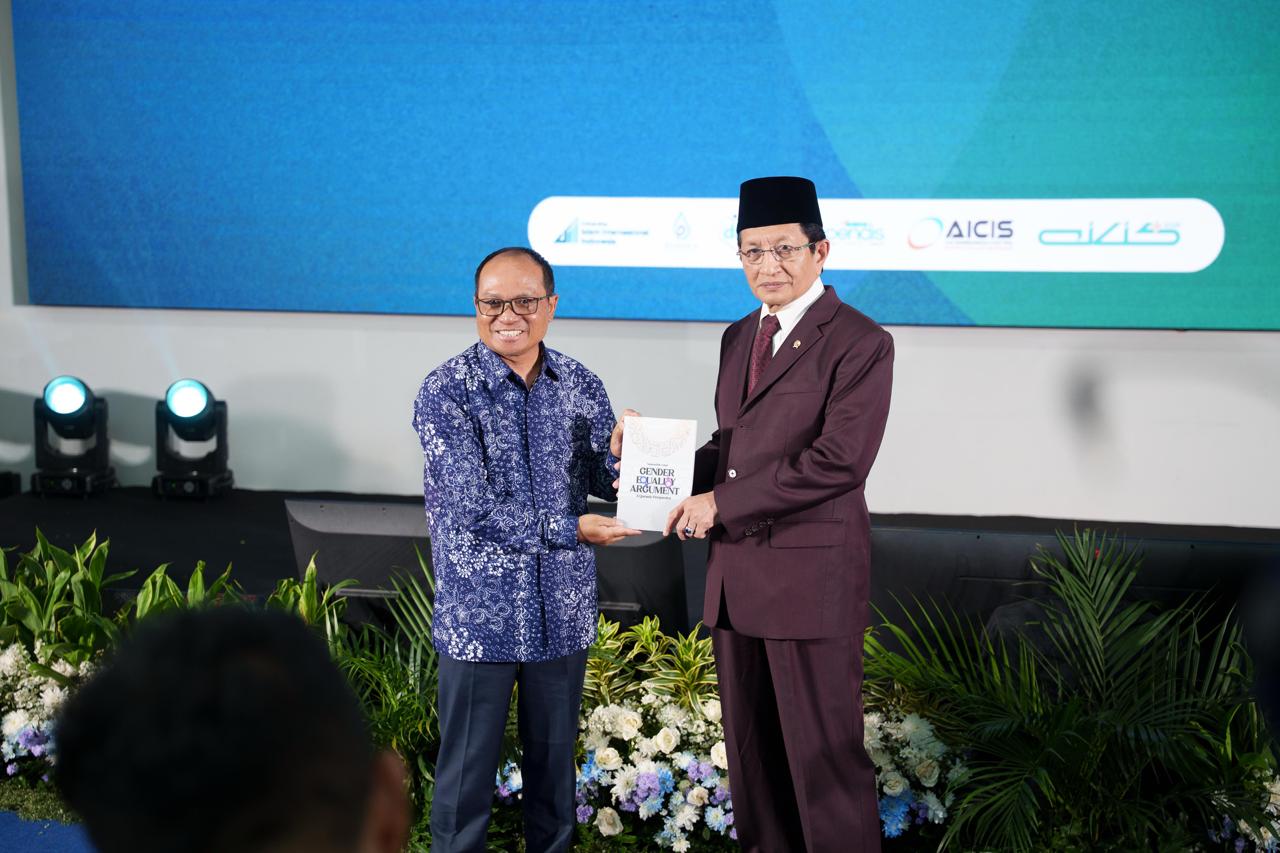More From News
UIII Builds a Bridge to Costa Rica
February 26, 2026
November 17, 2025
By Rasheed Adeyinka Uthman | Photo: Achmad Jatnika

As our world presents itself to be in urgent need of global attention in climate change, inequality, technological disruption, and environmental degradation, the need for innovative interdisciplinary solutions have never been greater.
To lead the advocacy, the Annual International Conference on Islam, Science, and Society (AICIS+) 2025, a transformative event with the theme, ‘’Islam, Ecotheology, and Technological Transformation: Multidisciplinary Innovations for an Equitable and Sustainable Future’’ hosted by Universitas Islam Internasional Indonesia (UIII) which took place between October 29 and 31, 2025 in Indonesia was a dynamic platform for addressing the global crises that threatens our shared future.
AICIS began its journey in 2001 as the Annual Conference on Islamic Studies (ACIS). Initially, it focused on traditional Islamic studies, providing a vital platform for scholars to engage in deep theological and cultural discussions. By 2012, the conference had expanded its scope to become AICIS, encouraging international dialogue and fostering a more global vision of Islamic scholarship. In 2025, the conference reached a major milestone with its rebranding to AICIS+, symbolizing a transformation that goes beyond the traditional confines of religious studies. The new identity represents a shift towards interdisciplinary exploration at the intersection of Islam, science, and societal challenges.
Notably, UIII as the host institution for AICIS+ 2025 played a pivotal role in the bold intellectual journey. According to Professor. Dr. Jamhari, the Rector, Universitas Islam International Indonesia, ‘’AICIS+ is not merely a conference where Islam is discussed; it is a forum where Islam speaks to the world in the language of science, compassion, and action.’’ The event drew all active and passive members of the institution, representing the university’s commitment to bridging Islamic scholarship with modern-day challenges. UIII was uniquely positioned, leading the advocacy with intellect and in practice.
Additionally, in the words of the steering committee chair, Professor Dr. Amsal Bachtiar, AICIS+ has grown in recognition after receiving a total 2434 article submissions, an unprecedented number of scholarly works from thirty-one (31) countries spanning Asia, Europe, Africa, the Middle East, and the America. This is a testament to the burning interest of intellectuals to effect change not just in ideation, but also in practice. Broadly, UIII engaged with the global community, an honor that amplified the institution’s vision of positioning Islamic scholarship at the forefront of problem-solving for today’s most pressing issues.
Interestingly, international experts, scholars, and practitioners from 31 countries spanning six continents including but not limited to Professor Ayman Shihaden from London, Dr. Hamrila Binti Abdul Latif from Malaysia, Professor Eka Srimulyani from Indonesia, and Dr. Sulfikar Amir from Singapore are some of the featured speakers. Also, Dr. Muhammad Ahmad Ibrahim Al-Jahsh from Umited Arab Emirate, Professor Muhammad Quaddus from Australia, Professor Shahram Akbarzadeh from Australia, and Associate Professor Stephane Lacroix from France among pool of other intellectuals complimented the list. That being said, beyond reasonable doubt, UIII’s AICIS+ 2025 serves as a gathering point for minds dedicated to finding practical, ethical solutions grounded in Islamic wisdom.
Furthermore, AICIS+ 2025 is not only a call for interdisciplinary collaboration, it is also an invitation to engage more deeply with academic discourses that address global challenges. Notably, ecotheology challenges scholars to reframe traditional religious teachings by integrating spiritual wisdom with scientific understanding. Using Islamic tradition of valuing nature and the environment, Arifki Budia Warman offers unique perspectives in his scholarly piece “From Myth to Maslahah: Adat Prohibitions, Islamic Legal Principles and Ecological Sustainability in Minangkabau Indigenous Governance“.
Meanwhile, “Development of I-Digital Goldpreneur Module: Transformation of Digital Islamic Financial Ecosystem Based on Shariah Compliance Towards Empowering Digital Gold Entrepreneurship in Malaysia” presented by Salmy Edawati Yaacob was a testament to how scholars explored how Islamic teachings inspire technological transformations as artificial intelligence and digital technologies reshape our world. Most importantly, AICIS+ partnered with reputable journals, to mention among others; Journal of Indonesia Islam, Indonesia Journal of Islam and Muslim Societies, Qudus International Journal of Islamic Studies, and El-Qist: Journal of Islamic Economics and Business to publish selected articles after all preliminary reviews.
In addition to the main conference sessions, AICIS+ extended to other side events such as Eco-Cultural Activity, Research Expo, Science and Education Expo, and the Halal Culinary Expo where practical applications of the conference’s key themes were explored. AICIS+ made history that bridged tradition and innovation, and pursued sustainability, equity, and justice for all. Finally, the multidisciplinary approach of the conference systematically integrated Islamic thought with science, technology, and societal needs, fostering a holistic understanding of the world’s problems and solutions. By blending theological, scientific, and ethical frameworks, AICIS+ 2025 encouraged participants to think beyond disciplinary boundaries and create innovative solutions that are both practical and grounded in moral and spiritual principles.
Universitas Islam Internasional Indonesia